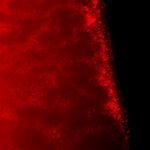Lien vers Pubmed [PMID] – 22749860
Life Sci. 2012 Aug;91(3-4):107-14
AIMS: The aims of the present study were to investigate the effect of crebanine on memory and cognition impairment in mice and to elucidate the underlying molecular mechanisms.
MAIN METHODS: The memory-enhancing effects of crebanine were assessed with a water maze test using scopolamine-induced amnesic mice. The molecular mechanism was explored in silico by docking crebanine against acetylcholine binding proteins (AChBPs) and in vitro with a radioligand competition assay using (±)-[(3)H]-epibatidine. The pharmacological behavior was assessed by observing changes to the functional activity of α7-nAChRs expressed in Xenopus oocytes and by fluorescent assays on recombinant ligand gated ion channel (LGIC) receptors expressed in mammalian cells.
KEY FINDINGS: The administration of crebanine significantly improved the cognitive deficits induced by scopolamine, as measured by the water maze test. The docking results demonstrated that crebanine bound to the active binding site of the AChBP template with a good docking energy. Crebanine significantly inhibited the binding of (±)-[(3)H]-epibatidine to AChBPs with K(i) values of 179 nM and 538 nM for Ls and Ac, respectively. Further functional assays performed using two separate protocols indicated that crebanine is an antagonist of the α7-nAChR with an IC(50) of 19.1μM.
SIGNIFICANCE: The observed actions of crebanine against amnesia and its effect on α7-nAChRs will be beneficial for target-based drug design; crebanine or its scaffold can be used as the starting point to develop a drug for Alzheimer’s disease. The cognition-enhancing effects of crebanine and the underlying mechanism based on α7-nAChRs are consistent with its traditional use. These findings demonstrate the potential utility of crebanine in the development of neurodegenerative therapy.

